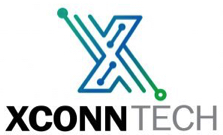SC23: XConn in Partnership with Liqid
To deliver composable memory solution, with Compute Express Link 2.0
This is a Press Release edited by StorageNewsletter.com on November 16, 2023 at 2:02 pmXConn Technologies Holdings, Inc. (Xconn) announced a partnership with Liqid, Inc., to deliver next gen composable memory based on the Compute Express Link (CXL) 2.0 protocol.

The companies will be featuring a demonstration of the composable memory solution – also including technology from Samsung – during SC23, November 12-17 in Denver, CO.
Memory-intensive applications such as AI and genomics research often face memory bottlenecks which can limit innovation and stall application performance. Using composable memory based on the CXL 2.0 protocol, application developers can achieve new levels of efficiency, flexibility and agility.
During SC23, the 2 partners will showcase a composable memory solution to take processing to the next level.
Enabling the orchestration of dis-aggregated devices connected via CXL fabric, Liqid Matrix software supports the XConn Apollo switch, the industry’s hybrid CXL 2.0 and PCIe Gen 5 interconnect solution. On a single 256-lane SoC, the XConn switch offers the industry’s lowest port-to-port latency and lowest power consumption per port in a single chip at a low TCO. Offering integrated support for the XConn Apollo switch, Liqid Matrix composes CXL memory device endpoints to CXL connected hosts, dis-aggregating the memory from the host server CPU complex and connecting via CXL to a server where DRAM memory is accessed directly for applications and workloads to use with exponential efficiency.
“Next gen applications can’t be limited by traditional memory barriers. A revolutionary change must be made to today’s infrastructure architecture to empower the processing performance modern workloads need to advance,” said Gerry Fan, CEO, XConn. “Our partnership with Liqid is delivering on this need, creating truly composable memory that can meet precise memory requirements in seconds, add and remove memory in real time and truly improve memory utilization and efficiency.“
“As leading CXL innovators, XConn has developed a compelling interconnect solution for developers looking to embed the flexibility of both CXL and PCIe in a single design. This is a tremendous accelerator for CXL’s adoption,” said Sumit Puri, CEO and co-founder, Liqid. “We are pleased to partner with XConn as we jointly deliver on the promise of CXL with composable memory for next gen applications and their workloads. Together, we are changing the memory landscape.“
“CXL memory technology, such as the composable memory solution being demonstrated by XConn and Liqid, is rapidly expanding the use of next gen architectures,” said Jangseok (JS) Choi, VP of new business planning team, Samsung Electronics Co. Ltd. “We are a strong supporter of the collaborative CXL ecosystem and will continue to work with significant CXL players including XConn and Liqid to accelerate the adoption of this memory innovation.“
With 256-lanes, the XConn Apollo switch also supports a PCIe Gen 5 only mode for AI-intensive applications and is a key component in Open Accelerator Module (OAM), Just-a-bunch-of-GPUs (JBOG) and Just-a-Bunch-of-Accelerators (JBOA) environments. Available, the switch features support for CXL 2.0, is backwards compatible with CXL 1.1 and supports PCIe Gen 5 in hybrid mode.
Liqid brings a way users scale and optimize their resources with its Matrix composable infrastructure platform. Matrix software integrates accelerator and storage resources into existing servers to create previously impossible resource density for the most demanding workloads.














 Subscribe to our free daily newsletter
Subscribe to our free daily newsletter

